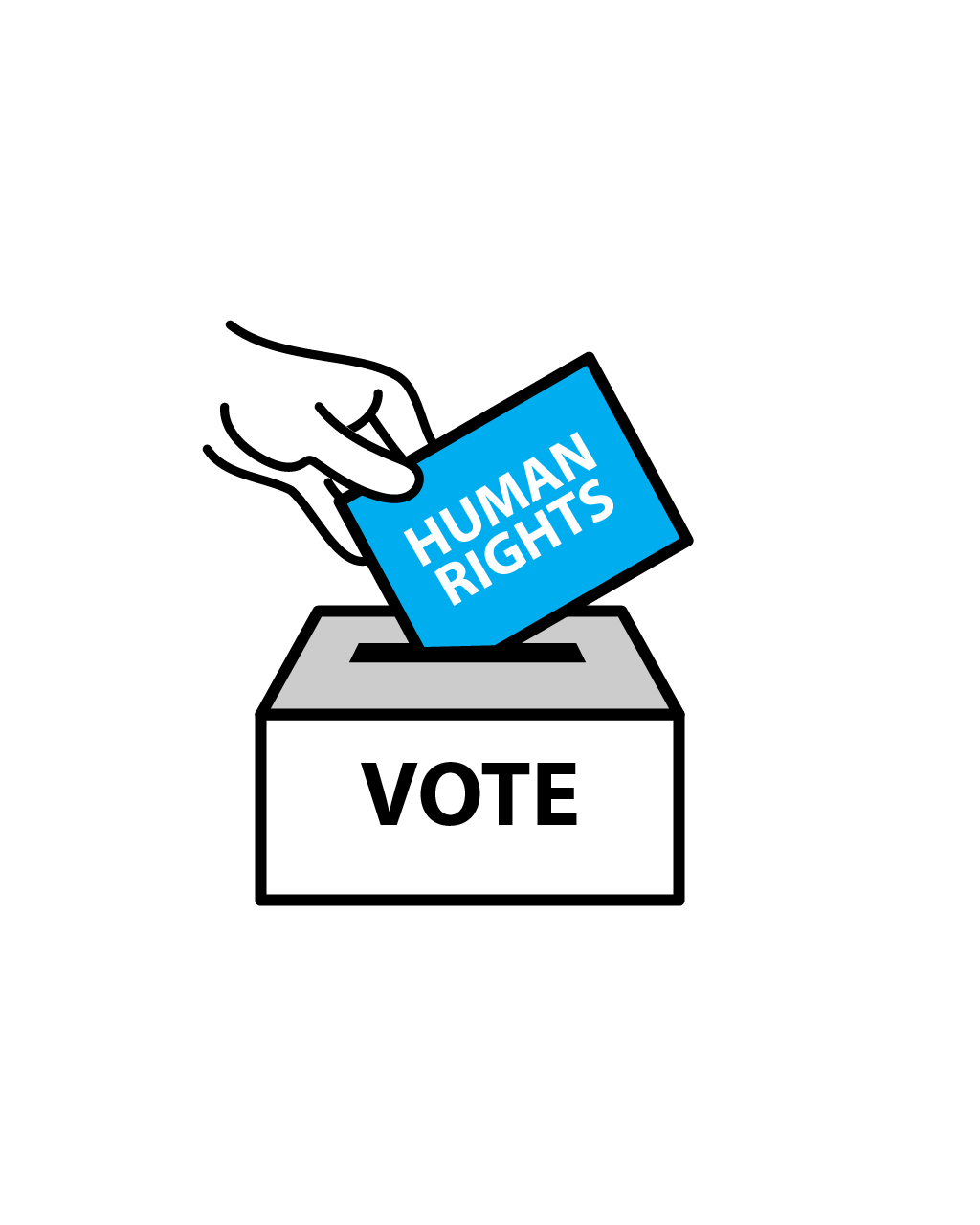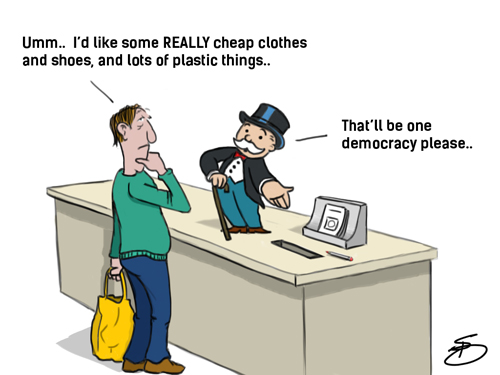#HumanRightsParty
• Manifesto
This is a manifesto of intent and vision for a hypothetical Human Rights Party, inspired by our #HumanRightsParty 2020 contributions:
#HumanRightsParty Manifesto
#Humanrightsparty believes it is time for real political change. Seldom was a visionary and decisive leadership more necessary, and its absence more dangerous.
#Humanrightsparty believes it is time to reserve more of our global capital in order to encourage and sustain the human rights-orientated goals of our society.
We represent a human rights motivation to shape the society we live in. Our methods are guided by human rights, equality, equity, dignity, and sustainability.
And a bit of joie de vivre.
We call for an active role by governement to steer markets and processes that they may contribute to a broader definition of quality of life, as defined by the UDHR and all members of a democracy.
It is time to re-evaluate our democratic institutions. To invest in inclusive representation and to embed human rights into our decision-making processes. Housing, healthcare, education, and (financial) security for all, are basic human rights and a critical emancipatory task for any society.
It is time to share the rewards of success fairly amoung all members of society. It is time for fair-tax and fair-trade, from the beginning to the end of the supply chain.
#Humanrightsparty considers the right to a liveable planet as a human right. We support market manipulation and immediate action to combat climate change, with a fair vision to share the costs and target the beneficiaries of pollution.
Cultural and gender diversity is an crucial goal for #Humanrightsparty because we embrace the differences that shape our world and respect individual rights.
We acknowledge that human differences are a natural phenomenon, and strive for an inclusive society in order to achieve real political and social transformation.
#Humanrightsparty believes it essential to represent diversity in society and to formulate strategies that help bridge gaps between classes and cultures.
#Humanrightsparty is motivated from the ground up, and supports the voices of people-power that champion positive change.
It is time that understanding wins over division.
It is time for a human rights party!
• Reflections
A big thank you for all the submissions and ideas that we received for our #HumanRightsParty call!
The challenge of thinking as a human rights party invoked a wide range of suggestions and read like a ‘101 on how to create a better world’. We found similarities and diversity amoung the responses, along with personal stories and passionate pleas.
The haste was apparent and the number of things to do abundant in a world that seems to be collecting problems faster than it can solve them. Nevertheless, it was refreshing to encounter a healthy dose of relativism by way of a general understanding that human rights can be messy and imperfect. Some even suggested that it should be. While doing their best to provide ideas to improve the lives of all, many contributers were attent of the dangers of being overly rigid and even warned against forms of ideological imperialism.
Altogether, a thorough collection of ideas, gripes, and dreams have formed a broad framework to help guide the direction and policies of a #HumanRightsParty.
Hereunder some reflections as we journey through the responses for our Hague Hacks 2020 #HumanRightsParty call.

• In or out of Politics?
I think it is fair to say that we all want a government that we can trust. Key requisites for this were an honest (human rights-based) motivation and transparency. The responses we received overwhelmingly called for a kinder capitalism that sustains and supports, instead of exploits and divides our liveable planet and its diversity of inhabitants.
A majority were decidedly positive that a human rights party could help to achieve this, although reservations were expressed about how this could best be done. Many felt that most would be achieved as the ruling party, or even as a pan-country party, where as others saw human rights as the constant arbitrator nested in the opposition, or as an accountability mechanism working alongside national institutions.
A few responders were concerned that to generate sufficient support for many of the suggested changes, such a movement would have to encompass more than just human rights to avoid the ‘single-issue’ label. But aside from electoral concerns, all responders strived for a stronger human rights influence in the political arena.
This all translated into a strong call for a political party with vision and ideas, and a new political culture that took action to solve problems.
• Rights
A returning and cross-issue concern was the rarety of ‘Prima Facie‘, or ‘On Face Value‘ which is when someone’s word is accepted as correct until proven otherwise. This alluded to difficulties in dealing with legal procedures and administrative systems (often decentralised) that increasingly seem to function on the premise of guilty until proven innocent instead. As such, Prima Facie is a fundamental philisophical building-block for the approach of #HumanRightsParty.
The responses were passionate yet also sensitive about their human rights proposals, with many keen to avoid potentially hypocritical situations created by rigid definitions of universalism. Particularly with regard to individual rights, alternative interpretations such as cultural sensitivity and relevatism were embraced as a crucial part of their implementation.
In places where human rights became ambiguous, dignity was seen as an important line no to cross when asserting the universality of a good idea. Since such cultural sensitivity can only be fairly weighed by a plurality of perspectives, this diversity would therefore also need to be represented amoung the members of a human rights party.
The following rights were highlighted amoung our responses: • Housing for all • Healthcare for all • (Financial) Security for all • Environmental rights • Immigrant rights • Worker rights • Women rights • LGBTQ+ rights.
Positively impacting on any of these rights was deemed contingent on a free press, in particular by responders from countries where this no longer exists. The importance of independent commissions to ensure liberty of press and freedom of speech received ample support, and was considered essential to counteract censorship by opressive regimes and capitalistic compromise by multinationals such as Facebook, Google, and Apple.


• Philosophy
Naunce woven into the passionate pleas and urgent calls-to-action suggested a considerate philosophy of slow thinking and self-reflection amoung the responders.
Many saw their solutions as crucial movements in the right direction while recognising the intrinsic flaws of a one-size-fits-all approach. Our responders felt it important to acknowledge conflicting rights, to adopt a cultural, scientific, and evidence-based approach, and that a ‘happy chaos’ may sometimes the best outcome that should be strived for.
The repsonders felt that it was time to reserve more of our global capital to encourage and sustain the human rights-orientated goals of our society. These goals should hold true at both national and international levels, and be embodied by a consistent foreign policy that revolves around accountability for human rights transgressions.
Many calls were made to support the ‘Changemakers’ in communities around the world; the eyes and ears on the ground that drive positive change, and our most powerful catalysts for conflict resolution and peace building.
These are our human rights defenders and environmental activists who urgently require structural support in order to sustain their activities, and to contend with the increasing risks to their own safety and livelihood.
#HumanRightsParty is motivated from the ground up, and believes in supporting the voices of people-power that champion positive social change.
• Asylum/Refugees
One of the most pressing human rights challenges remains the international community’s struggle to honour the right to seek and enjoy asylum from persecution in other countries (UDHR Article 14). The right to life and liberty, and freedom from fear are as fundamental as human rights get.
The rules and guidelines for this have been in place for over half a decade, yet people fleeing war and persecution are often ignored with few viable options at their disposal.
Our responders overwhelmingly supported a more generous refugee and asylum policy, some even insisting on no maximum to the number of refugees permitted into a country. Information, awareness, and education campaigns where suggested as a means to counter dehumanising and racist narratives and to help improve public support for immigration.
Moreover, the treatment of asylum seekers upon arrival in a new country leaves a lot to be desired. Asylum officers should be trained in humane treatment, and a Prima Facie approach to asylum assessment were offered as critical improvements.
Alternatives to refugee camps were also amoung the suggestions, with several calls for employment and housing solutions instead. This included ‘home stays’ with students and the elderly where possible. Altogether a more humane and trusting asylum process is required to take a stance against human rights abuses in other countries and to (believably) advocate for human rights across the world. Herein lies a larger and more consistent role for the EU to elicit broader support for the human rights of all nationalities.

• Society
A causal link was established between human rights violations and insecurity and inequality in today’s global society. Calls to reduce social and economic inequality more often than not placed the blame squarely on the shoulders of politicians, large corporations, and heads of industry. Suggestions on how to curb this worrying trend varied from fairer tax systems to finally recognising and abolishing modern day slavery.
“… capitalism turns out to be amazingly ineffective in watching out for people” (Trebor Scholz 2017).
In his ‘Elements of the Philosophy of Right,’ Georg Hegel proclaimed that within a realm strictly governed by economic incentives—void of institutional market barriers— responsibility and charity are too volatile to structurally persist.
#HumanRightsParty considers the need to establish effective market barriers as paramount to addressing the rising insecurity and inequality that finds itself at the root of much human conflict and division.
To this end, three major societal changes put forward were; housing for all, healthcare for all, and a Universal Basic Income (UBI).
For some, modern-day capitalism was also believed to contribute to loneliness, and diminished opportunties to form and sustain communities outside the workplace. The persisting inability to deal with these and other negative consequences of neoliberal free market capitalism, compounded a general feeling of distrust towards governments and political parties.
This was also felt in the declining role and increasingly anti-social design of many government institutions that traditionally formed the basis for trusted electorial representation. Many suggestions consequently attempted to redress these undesirable market effects and to re-evaluate the role and design of institutions to support society’s human rights goals.

• Industry
Many responders called for the direct accountability of industries that have a negative impact on human rights and the environment.
Supply-chain transparency, fair trade, and immediate action to halt climate change found their way onto most wishlists that sought to tackle modern-day slavery and environmental destruction.
To enforce meaningful change, all trade supply-chains should be transparent and respectful of fundamental human rights, with legislation and monitoring mechanisms on the international level. Not dissimilar to the EU but with more consistency and sharper teeth. Corporations, CEOs, or politicians who through action or inaction fail to enforce or repsect an honest supply chain, should not enjoy impunity but be held accountable.
With respect to countries and dictators who flagrantly abuse human rights, the repsonses were clear. Business embargos should be extended to (international) business partners and investors as well. And though the double-edged sword of embargos and its negative trickle-down effect on an already suffering population was acknowledged, many of the actual victims from these situations saw no effective alternatives.
With regard to redressing damage to abused (ex-colonised) countries, several calls were made for damage restoration to improve disadvantaged economic security, and for fair negotiations for the return of all stolen goods to their countries of origin.
• Environment
It is estimated that currently one person per second is forced to relocate due to climate change. The palpable urgency behind this crisis led to consensus that environmental destruction should be brought under ‘crimes against humanity’. A human rights party should focus on an immediate halt to environmental destruction and develop a fair vision to share the burden of cost.
Manipulating the market to achieve environmental goals was considered crucial as no one believed an entirely free market economy would realise this on its own.
Although changes in individual behaviour were welcomed to help reduce climate impact, the bulk of responsibility was attributed to political parties and industries, those that have their powerbase and wealth to thank by maintaining the status quo. These are the decision makers and influencers who ultimately decide which choices we are able to make.
The local environment also faired poorly amoung the responses, particularly in cities across the world where liveability was felt to suffer in favour of commercial growth. There were pleas to protect local nature and to implement policies for more liveable environments, sustainable bio-diversity, and community-building.
Pending climate disaster and global inequality were more often than not associated with a common root cause; namely the dominance of financial speculation by increasingly undemocratic groups who have over-commercialised liveability.
Solutions to these problems pointed towards broader and more inclusive human rights considerations to be enforced by (international) institutions and legislation.

• Discrimination
Tackling discrimination was high on the agenda, with genuine concerns about increasing conservatism and right-wing extremism. A ‘bubblelicious’ social media with its polarising success model via engagement algorithms received its fair share of accusations in under-representing constructive dialogue towards understanding.
Some felt that such business models based on unregulated and polarising algorithms, coupled with a worrying trend of global insecurity and inequality, were complicit mechanisms in an escalation of anger and ‘rhetorics of war’ in debates and had worrying de-humanising repercussions with respect to discrimination.
Questions were also raised about the responsibility of social media companies with regard to their position as modern institutions. Social media monopolies can no longer be simply seen as offering commercial products. Their embedded function in societies around the world has made them an unmissable public utility for communication and survival in the modern age.
As such, there were conflicting calls for internet freedom and regulation, with several responders acknowledgeding a dichotomy between its function as a platform for freedom of speech, and as a catalyst for discrimination.
Nevertheless, there was an evident need to regulate social media companies in their role as champions of the free word and as institutions.
“Acknowledging a world with individual differences is not made easier with divided social classes that do not mingle nor seek to understand each other”. That evolving class structures in the modern market do little to reduce these divisions was widely shared. That ‘cultural discriminatory programming’ is part of our decision-making process and always present in these class structures, was also widely acknowledged.
Responders warned against individuals and organisations that encourage false narratives and fake-news as part of a calculated strategy to polarise debates. Those that would benefit from division were considered to be predominantly (though not exclusively) conservative elements of society with an interest in retaining traditional power structures, both cultural and commercial, who embrace discriminatory attitudes as part of their identity.
To compound an age-old process of old and new attitudes growing together over time, there appear to be signs of a system crisis, an information crisis, and an identity crisis to deal with as well.
Suggestions to tackle division came in many forms; from information and de-radicalization campaigns, to punitive control by independent commissions. More hands-on approaches sought to improve familiarisation between groups through equality measures, facilitating greater inter-group interaction through civic design.
There was a general consensus that angry elements on both sides of the discrimination debate received too much attention in the media, spreading and rewarding our most toxic and de-humanising attitudes instead of constructive dialogue.
The point was made that extreme rhetoric from ‘the right’ does not seem to require facts to survive, but instead systematically invents them to rekindle emotional crusades. Many of our responders were equally weary of such mechanisms emergency from ‘the left’, and felt the need to combat some extreme positions portayed in the media that distracted from the essence of healthy debate.
Among the passionate calls for anti-discrimination measures, there remained concerns that an overly rigid approach via legislation could fuel more of the anger and emotions that drive much of the polarisation in this debate.
Concerns were also raised about the ‘silent right’ and their complicit role in trivialising the severity of discrimination through inaction and electoral catering for the extreme vote. This mechanism deserves attention as such behaviour steadily normalises increasingly extreme view points.
• Equality
Bridging gaps between progressive and conservative attitudes has always been an awkward process, often requiring conservative groups to develop new attitudes and responses in order to keep up with the social changes of the period. In the wake of WOKE and its call for awareness and (cultural) self-reflection, we are reliving a human mechanism that continues to play out through the ages, albeit with new rules and societal catalysors.
Any such alignment of attitudes or half-way happy meeting-points are by no means innevitable, and with the information bubbles and polarising workings of social media it will take a concerted effort by any political party to address this.
Nevertheless, it is essential to represent diversity in society and to formulate strategies that help bridge gaps between classes and cultures.
Many of our responses focused on soft tactics to improve understanding and cohesion between social and cultural groups.
There were recommendations for a national diversity advisory commission to advise on inclusive strategies, while taking care not to function as a watch-dog. Others insisted that without significant ‘improvements’ to our global neoliberal market model, efforts towards equality will always remain wishful thinking.

• Diversity
This brings us to another reoccuring theme amoung our #HumanRightsParty responses; diversity and the decolonisation of ‘Western’ attitudes towards ‘non-Western’ or ‘non-Christian’ backgrounds.
Decolonisation challenges all kinds of normative associations, and welcomes a new plurality of perspectives and respect for diverse identities.
Both diversity and decolonisation represent a break with the myth of objectivity. That a single narrative can pass as an absolute truth is increasingly acknowledged today as a position of ignorance or arrogance.
Moreover, decades of research in the social sciences have shown that any self-perceived notions of objectivity that we may have, invariably fall victim to the subconscious mechanisms of discrimination that we all inherit whether we like it or not.
This insight is about progress that has been made in our understanding of human behaviour, and it is once again the lot of conservative theories to rewrite themselves in order to catch up.
It would appear that the modern age of embracing and respecting multiple view-points conflicts with a colonial history that is embedded with a culturally heightened sense of singularity.
Singular narratives cultivate disrespect towards deviations from their artificially specific norms, as opposed to encouraging attitudes of understanding and an acceptance of differences. And though reluctance to change is quite a natural human process, the extent of this reluctance continues to find a powerful ally in colonial montheism.
Although it would be fair to say that all cultures would benefit from a process of self-reflection that challenges their own monologues, it is also fair to point out the need to address dominant cultures first, and to acknowledge the institutionalised disadvantaging of minority cultures, however ‘unintentional’ it may be.
Searching for a truly objective view of our society, its institutions, and the history that created them remains an impossible abstraction, but embracing a combination of our differences represents our best possible effort to this effect.
Normalising differences, on individual and cultural levels, starts with a more diverse representation of these differences in our lives. In our schools, media, industries, and institutions.
• Education
Many solutions found their counterpart in the educational curriculum. As is often the case, education is considered an essential route to solving today’s problems tomorrow.
According to our #HumanRightsParty responses there are several aspects of school curricula that require revision. This includes new lesson materials to broaden awareness of the human rights and environmental challenges that we face today.
While acknowledging the role of education in disseminating shared information and encouraging new attitudes, it is worth taking heed of concerns that schools are becoming increasingly stressful environments. This is backed up by recent research claiming that almost half of students are stressed by school pressures.
With the large amount of suggested reforms, it is prudent to be cautious of the effects of ‘mission creep’ in schools; where work-loads steadily increase to meet rising competitive norms, and new requirements are eagerly and regularly added in the hope of creating retrospective solution-makers amoung the next generation.
A major call for curriculum change was to ‘decolonise’ it. To confront and challenge the colonial influences on our education and our systems in general.
Decolonising the curriculum is an attempt to review educational narratives and materials from multiple perspectives, and to honour other valid stand points in our lessons and storytelling.
However, with confrontation comes polarisation. Even more so if the road to understanding is biased from the beginning, which it invariably is. For many it remains a long road travelled down a progressive path to understand the repercussions of their singular narrative, and how it frames the world.
These gaps can be partly breached via the educational system and a new shared curricula.

• Health
Amoung the rights that require protection is the right to healthcare. Like housing, the enjoyment of this right is very unequal.
Familiar mechanisms that drive societal inequality also create a growing divide in the opportunities for healthcare. Even those with health insurance are increasingly exposed to higher health costs and expenses that can quickly turn into debt. We received suggestions for free healthcare, compulsory health insurance, and hybrid versions of financing a health system based on equity.
There was also attention for a revaluation of care-work in terms of renumeration and resources, as well as other human rights considerations such as safe and accessible abortions, and for mutilations (eg. female genital mutilation) to be made illegal for children.
According to one of our responders; the value of a human life is a critical measure of any civilisation, and ‘healthcare for all’ a crucial emancipatory task for any society.
Text and illustrations: Steen Bentall
• Share Your ideas
Although submissions for #HumanRightsParty 2020 are now closed, your thoughts and ideas are always welcome and will be taken under consideration by The Hague Hacks.
Is there room in the political arena for a Human Rights party? What would such a party manifesto look like? Which changes and policies would you implement to achieve your human rights goals?
All contributions will be anonymous and your information will not be shared with third parties. Please fill in all sections.
